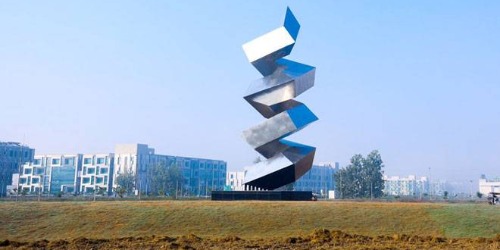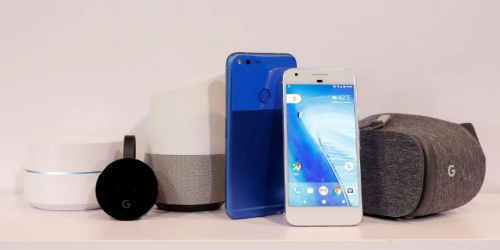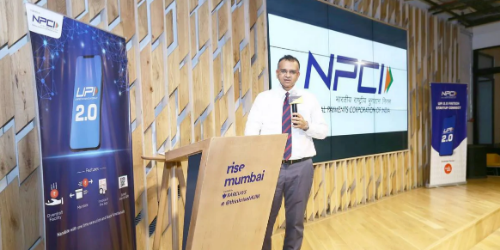Coronavirus: IIT Ropar develops design of negative pressure room to check virus spread

The Indian Institute of Technology, Ropar has developed a design of a negative pressure room (NPR) to prevent the transmission of COVID-19 through air at isolation wards and testing labs, thus protecting the medical staff from getting infected.
The design and modelling of the NPR took shape after a group of professors, including that of IIT Ropar, decided to come up with a solution to protect the frontline health staff working at coronavirus isolation wards. "We have come up with a design and modelling of NPR which can be set up at isolation wards and testing laboratories in preventing transmission of viruses," said IIT Ropar Associate Professor Dhiraj Mahajan.
He said South Korea managed to contain the spread of coronavirus to a large extent because of the NPR system. Mahajan said the low-cost NPR will help in protecting the health staff working at isolation wards.
Meanwhile, Union HRD minister Ramesh Pokhriyal Nishank appreciated the IIT Ropar team for the invention. "Congratulations to team @IITrpr led by Dhiraj K Mahajan for working out engineering aspects of Negative Pressure Rooms to create facilities for mass screening for Covid-19. It will help to contain the rapid spread of the virus," the minister said on Twitter.
Explaining the concept of negative pressure rooms, Mahajan said they are specially designed isolation rooms in hospitals and medical centers to prevent the transmission of viruses through air by patients. It includes a ventilation system that generates a negative pressure in the room and allows air to flow into the isolation room and escape from the room, carrying away the virus along, he said. "It will prevent spreading of COVID-19 patients' droplets in the air if they are coughing in the room," he explained.
Mahajan said it will cost Rs 9,000 for setting up a negative pressure room with a dimension of 9X9X8 cubic feet for a patient. It mainly involves exhaust fans, fine grade plastic sheets etc.
The IIT professor said inquiries about the NPR design have already been made by officials in West Bengal, adding they would soon make a prototype of the NPR. Mahajan, however, sought help from the Punjab government in giving them relaxation from curfew restrictions in sourcing necessary equipment for making the NPRs. Meanwhile, another team of researchers at IIT Ropar had developed a low-cost ventilator which can provide oxygen to two patients at a time. "It can be used for automatic compression of Ambu bag used in manual resuscitator," they said.
- 0
- Leave a comment
Google to launch new Chromecast Ultra codenamed Sabrina, may come with remote

Google is working on a new Chromecast device, and currently it is not clear if it is going to be a dongle or a full-fledged smart TV, but rumours suggest that the new Chromecast will be part of the company's Ultra range and that it is codenamed Sabrina.
A report from 9to5 Google, which covers news related to Google products and services, suggests that Google is working to launch a Chromecast Ultra that will be based on Android TV. The blog also suggests that the device will be accompanied by a remote similar to the streaming devices from other companies. For example, Apple TV, Fire TV and Roku all come with a remote.
Reports suggest that unlike the earlier Chromecast devices, the new Sabrina Ultra will come with built-in streaming apps. Previously, the Chromecast left it to the discretion of the customers to bring in things they wanted to watch from their phones or computers. The device will fill a long-awaited gap in the market: a mass-consumer dongle that runs full-fledged Android TV. The device will give users access to apps such as YouTube TV, Netflix, Disney+, Hulu, and more.
By bringing in Android TV interface, Google may hit the right spot as it is headed in the direction of traditional TV viewing. Moreover, the new Chromecast is bound to integrate with other Google services, like Google Assistant. Other than the TV viewing experience, Google aims at making it convenient for the users to view anything they can on the phone screens on a TV by using the Chromecast.
The remote will help users get more control on the audio and video settings while they are streaming content through the Chromecast Ultra. According to the report, a Google-made remote has already made it through the Federal Communications Commission (FCC) for approvals needed ahead of the launch.
Other than this, there will also be a change in Sabrina's design. Google 9to5 notes that Sabrina will have a softer, rounder design more in line with Google's current hardware.
Currently it is not clear when the new Chromecast Ultra will launch and whether it will come to India or not. While Google brings most of its products to the Indian market, on some occasions -- the Pixel 4 for example -- they don't come here or launch here with some delay.
Microsoft Boss Satya Nadella Trumpets Cloud Tie-Up With Reliance

Microsoft Chief Executive Officer Satya Nadella touted the new India cloud partnership with Reliance Industries as he shared centre-stage with its chairman Mukesh Ambani at an event in Mumbai on Monday. Microsoft struck a 10-year deal with Reliance in 2019, committing to power the oil-to-telecoms conglomerate's data centres with its Azure cloud.
"We've been working with Reliance across the entire stack - everything from what they are going to be doing with Azure in their own data centres and how they will extend it," said India-born Nadella at the event in Mumbai, where he began the first leg of his India tour.
"It's sort of a great example of a business leader and a company which is in very diverse sectors to take a platform approach, to use technology to create more technology."
The executives did not provide specific details about their growth plans.
"We're very excited about the partnership that Jio (Reliance's telecoms unit) and Microsoft will have and I think that will be, as we look at this decade, a defining partnership," Ambani said.
During a keynote speech earlier, Nadella emphasised the need for businesses to build their own technology at a time digital services are transforming all industries, and even homes.
Nadella visits his home country just weeks after telling Buzzfeed News that India's new citizenship law saddened him and was "just bad".
Citizenship Amendment Act, which paves a way for minorities from neighbouring Muslim-majority nations of Pakistan, Afghanistan, and Bangladesh to gain citizenship, has sparked weeks of protests.
Critics say that the law, combined with a proposed national register of citizens, will discriminate against India's Muslims minority.
Nadella, who did not broach political issues at Monday's event, will also travel to Bengaluru and New Delhi.
PhonePe, Google Pay May Be Hit by NPCI's New Zero UPI Interchange, Payment Service Provider Fees Rule

Through a circular on Friday, the National Payments Corporation of India (NPCI) said that it has agreed to revise the UPI interchange and payment service provider fees to "zero" for all domestic UPI merchant (P2M) transactions with retrospective effect from January 1, 2020.
The abolition of the fees has been made for an interim period until April 30, 2020, according to the circular.
The same is not applicable to services like mandates, EMI, overdraft account, and business-to-business (B2B) collections and payments.
The move to do away with these transactions fees comes after the abolishment of the Merchant Discount Rate (MDR).
With banks not able to charge merchants any MDR for RuPay debit card and UPI transactions, it was expected that they would be given the breather of not paying a fee to other stakeholders.
However, the move may hit revenues of digital payments players like PhonePe, Google Pay and Amazon Pay which have spent heavily to grab a greater market share in the UPI ecosystem.
As the abolishment of the UPI interchange and PSP fees for all domestic UPI merchant transactions comes with retrospective effect from January 1, it is not yet known how the fee already collected so far will be recovered.
The waiver of the PSP fee would hardly leave any room for Third Party Apps (TPAs) such as Google Pay, PhonePe, Amazon Pay and others to earn anything on UPI transactions.
On every UPI P2M transactions, these TPAs on average make about Rs. 0.30 - 0.35 through PSP fee.
It remains to be seen what future revenue generation streams can help these digital payments players stay afloat.
Coronavirus-Themed Malware Is Spreading Fast, Says Check Point Research

At a time when the deadly coronavirus is taking a toll on the tech industry with the Mobile World Congress (MWC) 2020 getting cancelled, coronavirus-themed spam is spreading Emotet malware, security researchers said on Tuesday.
According to researchers at Israeli cyber-security firm Check Point Research, the coronavirus-themed campaign targeted Japan, in malicious email attachments feigning to be sent by a Japanese disability welfare service provider.
The emails appear to be reporting where the infection is spreading in several Japanese cities, encouraging the victim to open the document which, if opened, attempts to download Emotet on their computer.
"Alongside the malicious coronavirus spam campaigns, which we expect to become even more widely spread over the coming days, our research shows there has also been a surge in scam websites using coronavirus in their domain names, allegedly selling vaccinations against the virus," Venugopal N, Director-Security Engineering, Check Point Software Technologies, said in a statement.
The report also identified a malicious Lokibot sample -- which is the eighth most popular malware this month -- targeting Indonesia, with emails sent about how people in Indonesia can best protect themselves against the virus.
Emotet is an advanced, self-propagating and modular Trojan.
It was originally a banking Trojan, but recently has been used as a distributor of other malware or malicious campaigns.
It uses multiple methods to maintain persistence and evasion techniques to avoid detection. It can also spread through phishing spam emails containing malicious attachments or links.


